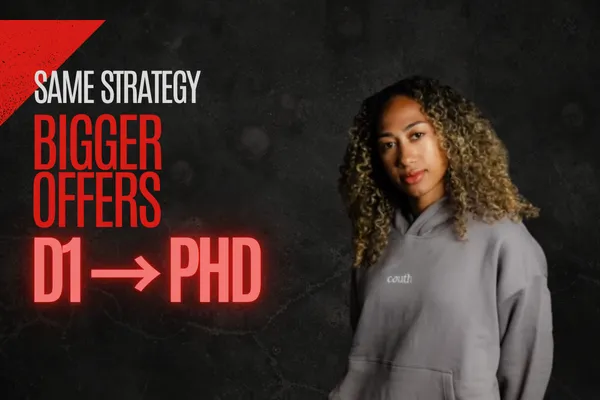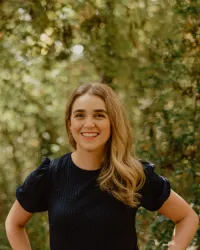Our up to date ideas on getting your PhD with the least amount of stress possible

From D1 Athlete to a Fully Funded PhD: Talia’s Game Plan for Getting In
From D1 Athlete to a Fully Funded PhD: Talia’s Game Plan for Getting In
"I Didn’t Even Know I Wanted a PhD Until I Did"
Talia wasn’t the kid mapping out her academic journey in high school. In fact, like a lot of high-achievers, she stumbled into her passion for research the real way — by taking a hard class and being curious instead of scared. Kinesiology
What’s More Transferable Than Team Sports?
People love to downplay their backgrounds when applying to PhD programs — and I’m here to tell you to stop that.
The Non-Traditional Path Works When You Own It
Talia’s path wasn’t “linear,” and that’s exactly what made it work. She had a 3.4 GPA in undergrad, a 3.8 in her MSW, and no fancy research portfolio.
How She Picked the Right PhD Program
Talia didn't just apply to schools based on the name. She got on Zoom calls with faculty. She networked. She asked smart questions.
Talia’s Advice (From Someone Who’s Been in the Arena)
Here’s what she wants other applicants to know:
- Don’t panic if you don’t have it all figured out.
- Prioritize relationship-building — with faculty and with current students.
- Be curious, not desperate.
- Over-prepare so you can show up confident.
- If you’re serious about this, make time for it like you would a class.
Final Score: 3 Offers, Full Funding, and a Clear Path
Talia has accepted her fully funded PhD offer at Georgia State in kinesiology and sport administration. She also got PhD offers in clinical psychology and social work, but ultimately selected the program that was the best fit for her.
Most people don’t know how you can get multiple offers from different departments, but once you know the game and how to market yourself, it’s a done deal.
Watch the full discussion here or listen to the podcast on spotify.
Let’s Talk About You Next
Want help mapping out your PhD game plan?
We’ll figure out what’s working, what’s not, and what moves you need to make to get to the next level.
👉 Book a free consultation call
Let’s see if we’re that edge you need to go from “maybe” to PhD offer letters.
Want insider PhD tips delivered straight to your inbox?
Get In Touch
FAQS
What do financial consultants do?
Financial consultants provide financial advice and guidance to individuals and families. They can help you develop a financial plan, choose investments, save for retirement, and protect your assets.
How do I choose a financial consultant?
When choosing a financial consultant, it is important to consider their experience, qualifications, and fees. You should also make sure that you feel comfortable working with them and that they understand your financial needs and goals.
What is the difference between a financial consultant and a financial planner?
Financial consultants and financial planners are both financial professionals who can help you manage your finances. However, there is a key difference between the two. Financial consultants typically focus on providing advice on specific financial products and services, such as investments, insurance, and retirement planning. Financial planners, on the other hand, take a more holistic approach to financial planning and can help you develop a comprehensive financial plan that covers all areas of your financial life, such as budgeting, debt management, and estate planning.


